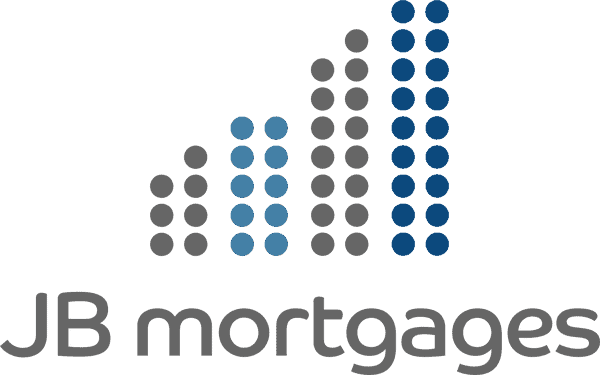Mortgage on High Rise Flat
At JB Mortgages we offer the personal attention required to find a perfect fit at the lowest interest rates available for your circumstances.
- Access to competitive rates and some you can't get direct
- Specialist Mortgage Advisers
- You'll experience an unrivalled customer service
What's On This Page?
Get In Touch
Home » Can you get a mortgage on a flat? » Mortgage on High Rise Flat
What are the main considerations when looking to get a mortgage on a high-rise flat?
First of all, high-rise flats can offer a very sought-after city centre location. And they often give excellent value for money, whether that be as a residential or a Buy to Let investment.
But securing a mortgage isn’t always straightforward. A key thing is to make sure that the fire safety regulations on the property have been met. We would usually ask for an EWS1 fire safety certificate for that.
We’d also need to consider the lease of the property and how many years remain on it. We check what the ground rent and the service charges are, as those may be included in any affordability checks.
We also need to consider if the property has any restrictions. For example, we need to know how many storeys high the block is, and if it has a lift. We’d need to know if there is any deck access and whether the building is ex-local authority.
Mortgage lenders will also check the demand and resaleability of the block of flats as well. So these are some of the unique considerations specifically around high-rise flats.

Mortgage on High Rise Flat
Sam Bull talks us through the Mortgage process on High Rise Flats.
So should I talk to a broker when looking at a flat in a block?
Yes, by all means. Many of our clients will send us a link to a property to look at. We’ll see how many storeys it is and make sure that the property is mortgageable before they proceed to making an offer.
What are the benefits of purchasing a high rise flat?
Potentially you will have a really beautiful view, especially if you’re in a city centre.
There may be lower utility bills, as these are often very energy efficient properties. Most blocks do have one or two lifts so you don’t need to worry about climbing all those stairs. Plus, as we said before, they can offer great value for money.
What are the potential drawbacks?
Some people don’t consider high rise flats because of the lack of outdoor space. That may be important if you’ve got a family.
Depending on the size and location of the block there may be limited or no parking facilities. That could be an issue for families with multiple cars. With high-rise flats, if there is a problem with the utilities or the electrics that affect the lift and you are on one of the top floors, you could be faced with a lot of stairs.
Does the height of a flat affect mortgage options or rates?
Mortgage lenders need to know how tall the property is and how many floors the block of flats has. Lenders may not lend on blocks above a certain number of storeys.
For high-rise flats with a very large number of storeys, potentially fewer mortgage lenders will lend on that block. Having fewer options might mean less competitive interest rates.
Are there any additional costs associated with purchasing high rise flats?
When purchasing any flat, you will pay additional solicitors fees, and that’s due to the property being leasehold. There’s extra conveyancing work that the solicitor will need to do in checking the lease. The solicitor will also check the terms and conditions of any service charges, the ground rent and how many years are remaining on the lease.
What factors could affect the resale value of a high-rise flat?
The location of the property is important. It’s obviously helpful if the property is close to essential amenities like good schools and public transport. A city centre location often increases the attractiveness to potential buyers, as will its facilities – some high rise flats may have a gym, a swimming pool, parking facilities or concierge service.
Another thing to check is the percentage of owner occupancy in the block, which can also have an impact on the resale value. Blocks with lower owner occupancy or a higher proportion of council tenants could reduce the resale value.
Will the age and condition of the building affect the mortgage process at all?
It wouldn’t necessarily affect the mortgage process, but older buildings may be less desirable if they lack modern design features or if they’re less energy efficient. We would check the EPC of the property to see how energy efficient it is.
This could be offset by the location of the property or if the property’s been really well maintained. Each block would be looked at on its own merit.
Is there anything buyers should be aware of when they’re purchasing a flat on leasehold mortgage?
Buyers should check how many years are remaining on the lease. Most high street mortgage lenders typically need around 70 years remaining when you buy the flat.
We do have specialist mortgage lenders who will lend with a shorter lease than 70 years, however. Some who may also allow some additional borrowing to extend the lease. But that’s something that would need to be checked out before you commit to buying the property.
What role does the building management company play in the mortgage process?
It doesn’t have a massive role in the mortgage process, but the building management company will provide you a copy with the EWS1 fire safety certificate and they may also arrange access for the valuation of the flat. Apart from that they won’t usually play a huge role.
Are there any other specific documents or reports that buyers of highrise flats should request before applying for their mortgage?
Definitely check the EWS1 fire safety certificate. We need to make sure there are no combustible materials in any of the external walls.
It’s also always worth getting a home buyer’s report on the property. That gives you knowledge of the overall condition of the building and the property you’re buying. It’ll give you advice on any repairs or ongoing maintenance that the building may need.
You should also check the lease document and what the service charges and ground rent is. We can help on all that and advise you on what a good lease looks like.
When is best to get in touch with you before viewing a property?
The earlier in the process the better. If you’re thinking about buying any property, including high-rise flats, it’s always worth having an initial chat with us. We can advise on how much you can borrow – and that will obviously influence what you’re looking at on Rightmove.
Once we’ve had that chat and we’ve got your Agreement in Principle, then any properties you see are worth sending over to us – we’ll just give them a once over.
We’ll check there won’t be any issues mortgage wise. We can advise on potential products for you, so you can make that informed decision about if you want to proceed on the property upfront.
Will I need an Agreement in Principle to view high rise flats?
As part of the initial appointment with you, when we get all the information about your income and your expenditure, we’ll give you advice on how much you can borrow. We will usually then get you an Agreement in Principle.
That involves an initial credit check, and assuming there are no issues the lender will usually send you a certificate confirming exactly how much you can borrow. When you are viewing properties, the estate agent will almost always ask if you have a mortgage sorted. This way, you can confirm that you’re good to go once you find the right property.
Your home may be repossessed if you do not keep up with your mortgage repayments.



